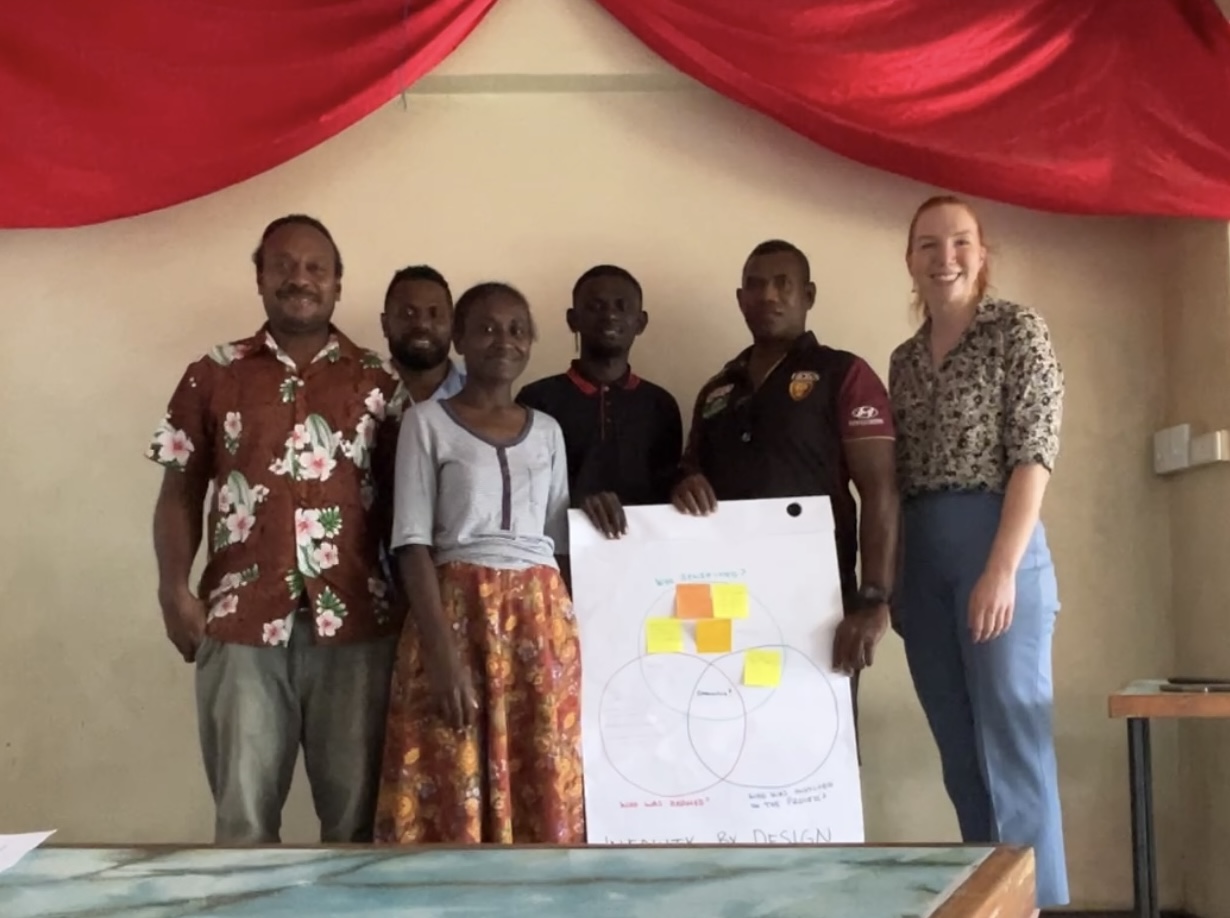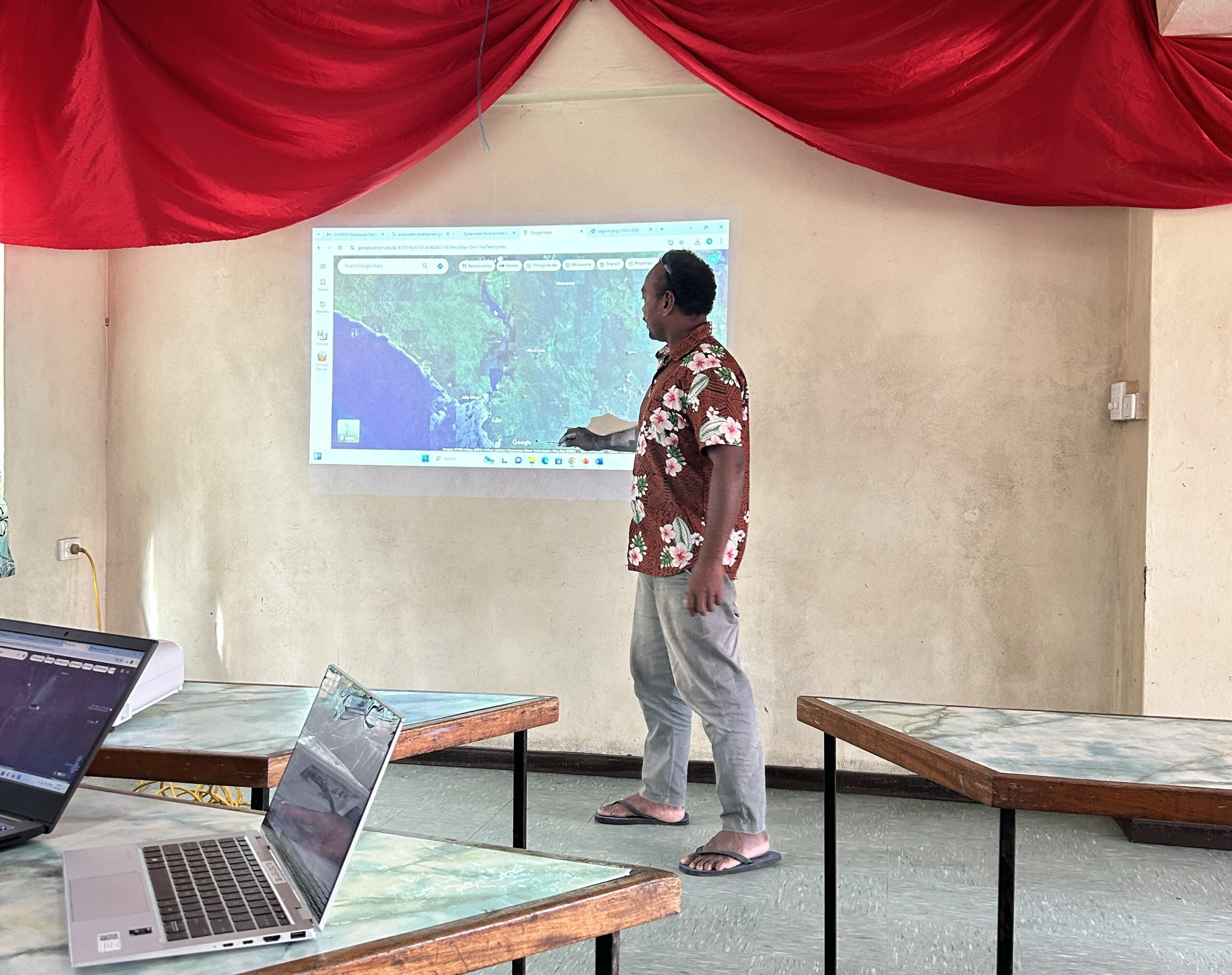Who gets to define development? And what is the role of community organizers and advocates in leading it?
At ICAAD, our mission is to dismantle structural discrimination globally. Equipping ourselves and our peers across disciplines with tools for self-determination and advocacy is central to achieving this monumental impact. Each iteration of our human rights education program is developed in response to the needs of our local partners, bringing together the latest innovations in data, legal advocacy, campaigning, and research. This high-level data is enriched with real-world insights from our colleagues at the frontlines of human rights’ initiatives to develop the accessible and practical resources necessary to create social change from the ground up – rooted in the particularities of each distinct context.
[Post title borrowed from bell hooks’ revolutionary book, Teaching to Transgress: Education as the Practice of Freedom]

Human Rights and Community Development Workshop
May 11, 2024, Honiara, Solomon Islands
Poem
I am a drop of water,
A single tear,
A solitary rain drop blowing in thin air
Not without a fear
Searching, coursing, finding a way,
my way,
our way?
To an ocean teeming with life
Am I a drop in the blood in your veins
Or the ghost of an attempt in vain,
swallowed by the scorching sun,
battered with the beating rain
Will I come back, or have I passed by
Was I butterfly flapping a category five,
a trail of destruction passing through the eye
Access, time, money, structure
Justice, bribes, equity and fairness
How do I equate, how do I quantify
Factors of a prodigy
(bent to wipe clean away the slate)
of hate,
a fate
I will defy…
…end
[see artist’s notes below]
Building on many of the lessons in the re:flexing course and contextualizing them within the circumstances of each particular cohort, we are building each community’s capacity to challenge and transform the systems of oppression that shape policies and impact their movements, communities, and relationships.
At ICAAD, we rely heavily on the tool of design justice. The framework was developed by the Design Justice Network – a collective of design practitioners, community organizers, and social justice advocates, who brought together the Network in 2016. The design justice principles help inform the “how” of anything we design – whether it’s new technology, an art exhibit, policy, or a development project.

One of the workshop participants, Grayham Tahu, Grants & Program Manager at Apunepara Ha’amwaora Natural Resource Association (AHNRA), sharing the mangrove cover in his province.
In our Human Rights and Development workshop, we worked through case studies from the Pacific to unpack the design justice principles and workshop participants crafted useful questions they might ask if they were brought onto a “design team” for a given case study.
For example:
- Is there anyone else impacted by this project who is not in the room?
- Who will have control over the concept when the project is formally complete?
- Are we staying focused on the outcomes desired by those most impacted?
All of these questions direct us to improve the “how” – the design process of development projects – in order to produce the most equitable outcomes.
Building on these concepts, we concluded the session by exploring strategies for building solidarity among community members. We unpacked how understanding our self-interest and finding alignment in our visions for the future can be powerful tools for organizing people for change. With seasoned organizers in the room, we drew on our collective strength and brainstormed potential strategies as well as surfaced and troubleshot persistent challenges.
Finally, we identified a vision for the future that rang true for each workshop participant, and to the cohort as a whole. We saw the dismantling of the exportation of wealth through extractive industry, protection of the environment for future generations, and true fairness and equity in accessing the fruits of the land that we belong to.
Our Human Rights and Community Development workshop exemplifies ICAAD’s commitment to building the capacity of community changemakers. Your support directly contributes to the empowerment of individuals and community groups to challenge and transform unjust systems. Your donation will help us continue offering these vital educational opportunities, ushering in more just and equitable futures with the communities most impacted by these changes leading both their design and their execution.
Artist’s Notes
“I included explanatory notes for the poem because the poem was intended to express when conventional sentences fall short.”
| Poem/ Narrative | Imagery | Explanatory notes |
|
I am a drop of water, |
Drop of water in Solomon Nature, tear eye, misty rain blowing. | Feeling alone, sad, helpless at times. But I know that, like a drop of water, I am part of a larger body (interconnected system). |
|
Not without a fear |
Same teary eye above, face this time subtle fear expression. |
I am afraid, vulnerable. Brave and determined |
|
Searching, coursing, finding a way, |
Stream, fast flowing river round bends, raging river waterfall, gentle huge river, quiet bubbling stream. |
How do we organise, what will that look like, a torrential downpour? A raging flood? A calm body of water? |
|
To an ocean teeming with life |
Rumble/roar of the ocean, with sounds of wildlife, mangrove sounds |
A more equitable, fair, and just society. Prosperity |
|
Am I a drop in the blood in your veins |
Heart beat (life, love), sound of blood flowing through vessels. (Mother baby?) |
Do I have use? Do I have an important part to play, am I important? What is my part to play? Empathy or self-righteousness? |
|
Or the ghost of an attempt in vain, swallowed by the scorching sun, battered with the beating rain |
Fast frame, caking mud to dust, merge into beating crashing raindrops on the dust and flaking mud |
Is this a hopeless cause? Will I give my life and sacrifice all to a cause that will leave me poor. Will I run out of energy and burn out? Will I give up and become part of the system just because I need to earn a living, or just because it’s the path taken by most? |
|
Will I come back, or have I passed by |
Sun rise morning sounds nature, sunset evening to night sounds |
Will I do something and achieve it, or have I reached my used by date. |
|
Was I butterfly flapping a category five, a trail of destruction passing through the eye |
Butterfly flapping slowmo sound of wings, satellite image of cyclone (weather report), to gale force winds coconut palms, to, silence destruction in the eye of the storm with the second surge looming |
Am I worthy to organise. Has my inconsistent career path (multiple different roles) undermined my legitimacy to be accepted as a leader? Am I part of an unjust system? How do I ensure that I do not perpetuate the oppression I strive to eradicate? |
| Access, time, money, structure. | Captures of the daily struggle of people |
Human rights, freedom, and basic necessities are purported to be available by those with power. Government and development partners display all their “achievements” and “good” deeds daily on media. However, the people face hurdles that makes it difficult to enjoy human rights, and access basic necessities. |
| Justice, bribes, equity and fairness |
Snaps of media development achievements etc. reports |
How do we achieve these when no one seems to care. Authorities purported to uphold these are constrained or contaminated. |
|
How do I equate, how do I quantify |
Silence, the eyes of struggle, yet deep within a hidden strength, determinations. Speed frame, hands clasping to each other |
How do we organise and unite people to seek justice when we are up against overwhelming odds. How do we understand better what we need to address. |
|
Factors of a prodigy bent to wipe clean away the slate, of hate |
Abstract of systems of oppression, wiping sand back and forth over flags representations of colonialism and decolonisation struggles |
Systems of oppression seek to cover its tracks, at the same time systematically wiping away the identity of people |
|
A fate I will defy. |
Close up of one face – pan out to everyday people standing as one |
Despite of all of the challenges we will persevere till we achieve equity, justice, fairness, or our time is done. |
